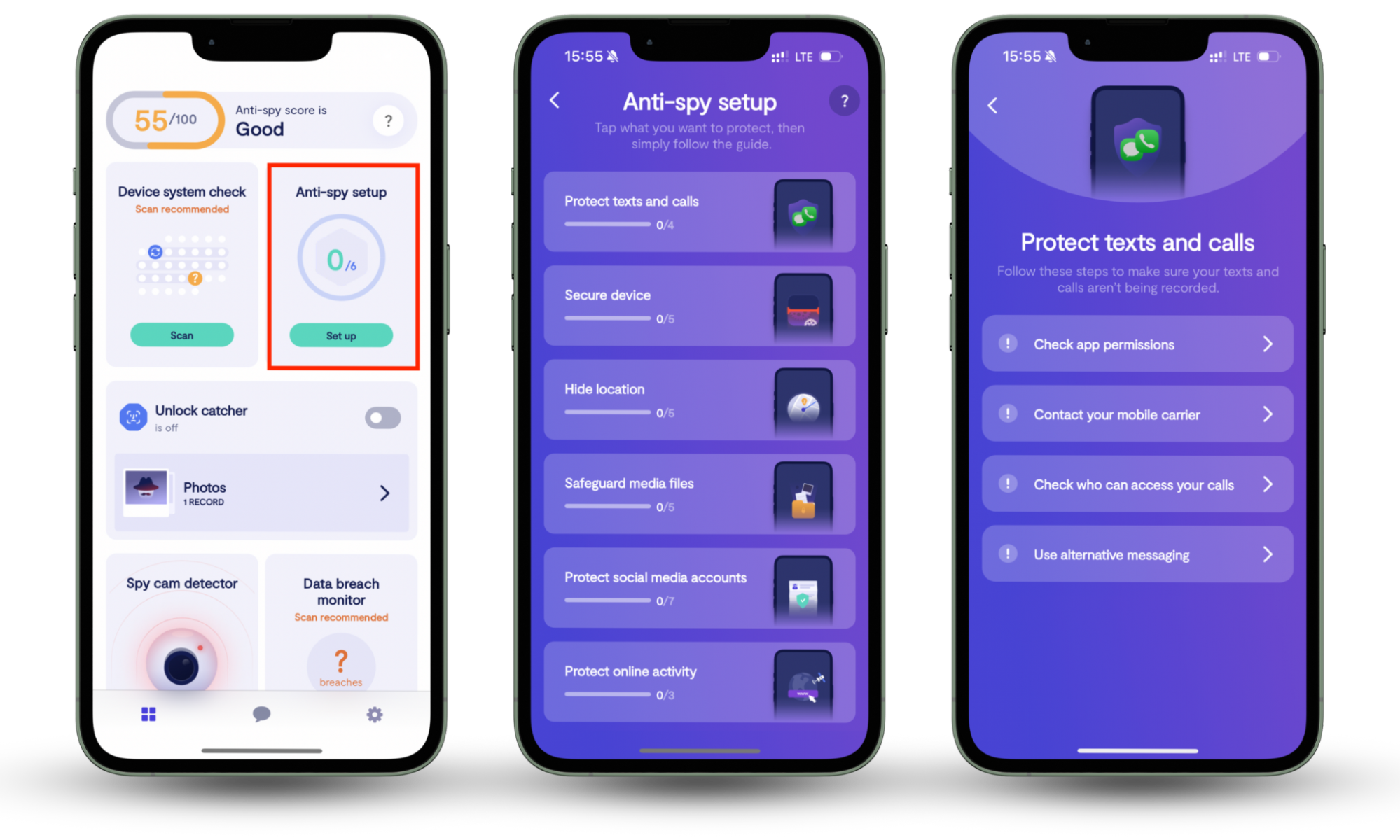Table of contents
- What is an IP address?
- Types of IP addresses
- Consumer IP addresses
- Private IP addresses
- Public IP addresses
- Shared IP address
- Dedicated IP addresses
- Why is an IP address necessary?
- What information can you get from an IP address?
- How to protect your IP address
- Use a VPN
- Use a proxy server
- Protect your IP address at all costs
What is an IP address?
An Internet Protocol (IP) address is a digital footprint consisting of a series of numbers, separated by periods, that can be used to identify you on the internet. The numbers usually range between 0 and 255, although this isn’t always the case.
What does an IP address do? It sets the rules of how the format of data is transmitted on the internet or a local network. An IP address usually looks like this: 123.245.78.9
It is used to identify devices that connect you to the internet, so every device of this kind has an IP address. The following devices are examples:
- Routers
- Laptops and computers
- Smartphones
- Smark TVs
- Tablets
- Blootooth-enabled devices, like your smartwatch or speakers
- Printers, etc.
IP addresses make these devices, which are used to browse the internet, accessible for communication. They also make them identifiable online, as an IP address is specific to a device. This makes it possible to differentiate between devices and websites on the internet.
Types of IP addresses
IP addresses can fall under different categories. Within each of the categories are different types of IP addresses.
Categories include consumer IP addresses, private IP addresses, public IP addresses, shared IP addresses, and dedicated IP addresses. Let’s have a look at each one below.
Consumer IP addresses
Consumer IP addresses are those IP addresses assigned for home/personal and business use. They can be both private or public IP addresses, as we’ll soon see below.
Private IP addresses
Otherwise known as internal or local IP addresses, private IP addresses are unique IP addresses that are assigned to each device used to connect to the internet.
Devices like your smartphone, computer, tablet, smart TV, smart speakers, printers, and more all have their own private IP address. If you have multiple devices connected to the internet in your home, which most people do, your router needs to be able to identify each device.
That’s the purpose that private IP addresses serve — they make your devices identifiable on the network. As such, they’re only visible to other devices on your private network. They can’t be identified from outside on the public internet.
Public IP addresses
Over and above the private IP addresses assigned to private devices on your home network, there exists an overall IP address associated with your home network. That’s what a public IP address is. It’s also known as an external or global IP address.
Public addresses are assigned to your router by your internet service provider (ISP), which is responsible for assigning IP addresses to its customers. For example, if you buy a router from AT&T, they’ll assign a public IP address to that router as they do to others.
All the devices outside your network on the public internet will be able to see your router’s public IP address to identify it online. Public IP addresses can be broken down into two categories:
- Dynamic IP addresses
These are ever-changing IP addresses assigned by ISPs. The whole process of assigning and re-assigning IP addresses is automated and happens occasionally. This process allows customers of ISPs, like you, to keep their information safe and protected, as it makes it difficult to track and hack them. To that end, ISPs may re-assign your old IP address to another customer when they change yours. It’s also a cost-saving measure for ISPs, as manually assigning IP addresses can be taxing.
- Static IP addresses
Static IP addresses are different from dynamic IP addresses in that they remain the same throughout. This means you keep the same IP address assigned to you by your ISP. Individuals and businesses don’t have to have static IP addresses — they need dynamic ones for security purposes. However, businesses that want to host their own servers must have static IP addresses to ensure that other devices on the internet can find their websites and email addresses.
Check it out!
You can also learn how to find your IP address in our guide on the differences between private and public IP addresses.
Shared IP address
Websites have IP addresses, too, as internet devices do. There are two types of website IP addresses: shared IP addresses and dedicated IP addresses.
Web hosting providers host many websites on the same server. In such cases, those websites are on what is called a shared hosting plan and therefore have shared IP addresses.
This is typically the case for small websites or websites belonging to small businesses, with a minimal number of pages. Those websites tend to be easier to manage due to low traffic volumes.
Dedicated IP addresses
On the contrary, businesses can choose to pay for IP addresses that are dedicated solely to their websites.
A dedicated IP address comes in handy when building your own website. It allows you to test the website before registering the domain by accessing the website using the IP address instead of the domain name.
As you'll see below, your IP address can reveal your approximate location, and web trackers will monitor you across browsing sessions. Using a VPN or proxy server can help prevent this, but it's equally important to tighten the security settings on your devices. Clario Anti Spy is a security solution that simplifies this process with its Anti-spy setup.
Here's how to run an Anti-spy setup with Clario Anti Spy:
- Install Clario Anti Spy and subscribe to create an account.
- Tap Set up under Anti-spy setup.
- Work through each category—such as Secure device, Hide location, and Protect social media accounts—by following the onscreen instructions.
- Tap Messages to connect with a security expert if you need help.

Clario Anti Spy for Android also includes a Virtual location feature that lets you mask your real location with a fake one. This is useful for hiding your location even without a VPN or proxy server.
Why is an IP address necessary?
An IP address makes it possible for you to access and use the internet. Without it, this would be impossible.
That’s because an IP address acts as the middleman or point of contact in a communication path on the internet.
It transmits data, known as packets (of information), between the device where the information stems from and the destination device or where the information is being sent to.
In essence, it channels packets of information to their intended recipient, which is a crucial part of the internet. All of this happens behind the scenes, but it’s what allows you to open and use a website when you click on it.
But this also means that you can find some information from an IP address.
What information can you get from an IP address?
Anytime you use the internet, you’re sharing your IP address. Below are some examples of activities that share your IP address:
- Streaming a TV show or movie online
- Participating in a live stream
- Gaming
- Sending an email
- Shopping
- Visiting a website.
These are everyday activities that you probably undertake without thinking twice. And while you may be using the internet innocently, there may be repercussions.
Not everyone uses the internet in goodwill. There are hackers and bad actors who prey on unsuspecting internet users, like yourself, who unknowingly share their IP addresses as they navigate the internet.
They hack your devices using your IP address, and access — and sometimes steal — your private information. So, what does an IP address tell you? Let’s look at some examples of what you can tell from an IP address:
- Home address
- Work addresses
- Email addresses
- Online passwords
- The media files on your mobile phone, tablet, or computer, like personal photos
- Confidential files that are saved on your computer or laptop.
The information your IP address gives would then be sold on the dark web, used to blackmail you, or used to steal your identity. There’s no telling how far hackers and bad actors could go in these instances. They could even open up credit cards in your name and defraud innocent people.
Does your IP address show your exact location? No, however, it shows the general location you’re in based on your router’s coordinates. Additionally, your IP address can reveal information related to your browsing habits. These include:
- The websites you visit, which can reveal your interests
- The places you visit
- Your workplace address
- Your online shopping habits
- Your streaming habits.
Warning!
Same as you don't post your home address and your passwords on social media, you shouldn't make this information available with your IP address. Consider encrypting your IP address as soon as possible.
You wouldn’t want to fall victim to hacking or have your personal information exposed, that’s why you must protect your IP address at all costs.
How to protect your IP address
Now that you know how an IP address can put you at risk by revealing your private information, you’re probably wondering how to protect it. Let’s look at all the ways to achieve that.
Use a VPN
As we’ve established, using the internet exposes your IP address, which can be obtained and abused by bad actors. So, if you want to protect it, you must use a VPN.
Here’s how a VPN works: it protects your real IP address by giving you a new one and allowing you to change your VPN location to connect to a different server. This keeps your IP address anonymous. It allows you to browse the internet confidently, knowing that your personal information is protected. But don’t just use any VPN — go for one that gets the job done.
A good VPN should offer the following benefits:
- A wide range of server locations to choose from
- Server locations around the world, not focused in one area
- Fast speeds
- Ease of use, allowing you to connect quickly and easily.
If you’re new to using VPNs, learn how to set up and use a VPN. It would help to also educate yourself about the best VPN server locations, so you know how they work.
You should use a VPN every time you use the internet, but there are instances when you can’t risk not using one:
- While traveling
- When using public Wi-Fi (hackers can access your data if they’re on the same Wi-Fi network you’re on)
- If you are working remotely.
Use a proxy server
Your second option is to use a proxy server, which can also hide your IP address. A proxy server helps protect your personal information by making its own IP addresses visible to internet servers in place of yours.
Proxy servers route your internet traffic so that whatever data is sent by internet servers is first routed through them before it reaches you.
While this sounds great, proxy servers have their drawbacks. Unfortunately, they allow some servers to spy on you, which is counterproductive and not ideal for anyone trying to protect their information. They sometimes allow ads, too.
If you want peace of mind, make sure you use a proxy server you absolutely trust. If you’re apprehensive, your best bet is to use a VPN, as mentioned above.
Protect your IP address at all costs
The internet has many benefits, but it can cause problems if you don’t take the necessary steps to protect your personal information. It can reveal information like the websites you visit, your Netflix history, and even where you live!
The consequences can be dire, like your information ending up on the dark web or someone using it for their own sinister purposes. That’s why you must be proactive in protecting your personal information. We won’t tell you to stop using the internet. So, as an internet user, your first step in protecting your personal information should be to protect your IP address.
You can achieve this with a VPN or a proxy server. For better privacy and security on your mobile devices, combine it with Clario Anti Spy.


